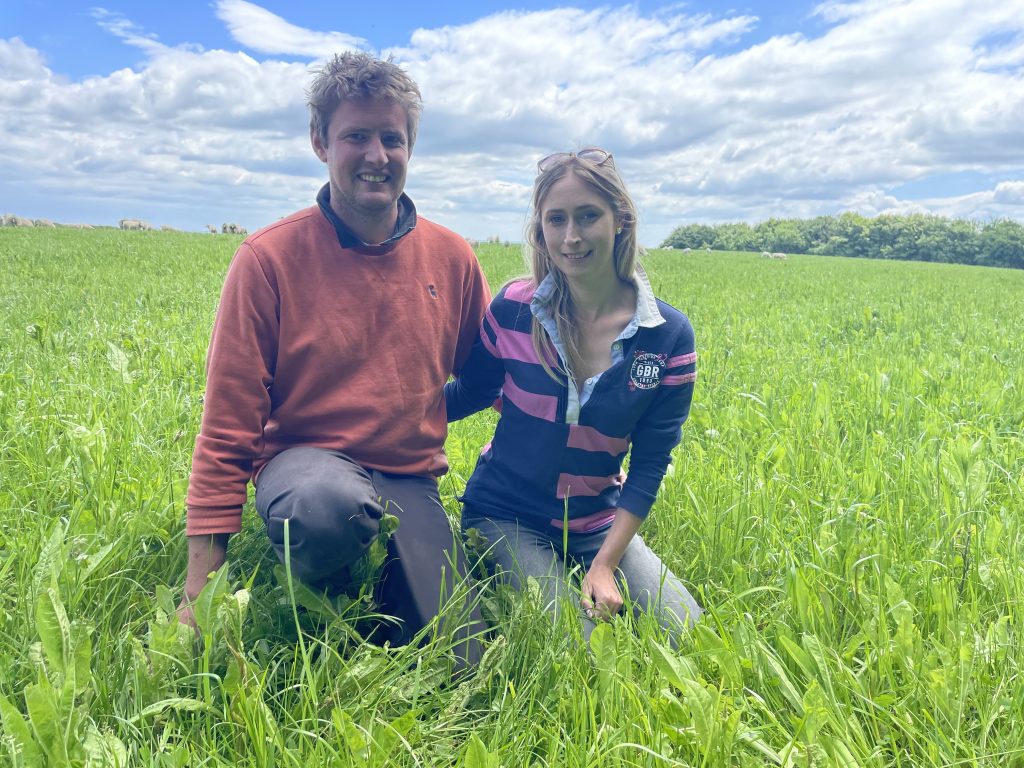
Address:
Cerne Abbas, Dorset
Farming
430 acres summer grazing, seven different landlords and 1,000 acres cover crops, winter grazing, three different estates.
Innovis flock
Abermax
Aberglân
Aberfield SR
Primera
Additional livestock
300 Highlander ewes
180 Poll Dorset ewes
130 shearling ewes Abermax and Aberglân split
6 sucklers
Farming background and objectives
Establishing a low input forage-based sheep enterprise was an obvious choice for new entrants, Sam and Samantha Edwards when they agreed a business partnership back in 2020. “We’d worked out high output grass reared lamb was the cheapest and only way to go, particularly since we had no capital to start out with. We wanted to push as hard as we could to achieve a 200% scan, however, we knew it wasn’t always going to be achievable until we became aware of grass bred and reared Highlanders, maternal genetics from Innovis,” he explains.
In 2022 the couple invested in 200 Highlander ewes to supplement their original start up flock of Poll Dorsets. “Last season the Highlander flock scanned 189% and reared 167% solely off grass. “We lamb outdoors in April with 84% complete within the first three weeks, intervention is minimal, and we soon found that the ewes make tremendous mothers, they have good udders with plenty of milk and don’t let their lambs run out of sight,” she says.
“In fact, less is definitely more,” she continues. “We drive around twice a day, three times in poorer weather – we’ve learned the ewes like to be left alone to get on lambing themselves; while ewe lambs disappear into a hedge and reappear with a lamb 48 hours later. Lambs are reaching 43kg target from 13 weeks, after which to maintain cash flow we sell through the live ring throughout the season; 40% are away by 20 weeks while this last season we stored a portion over the winter and capitalised on the strong market earlier this year. We keep tabs on lamb performance weighing fortnightly from eight weeks.”